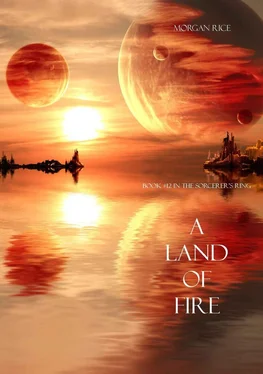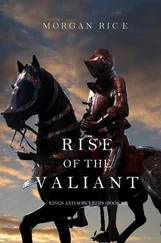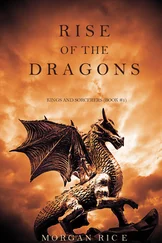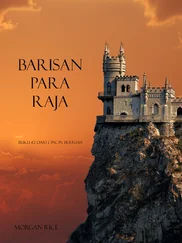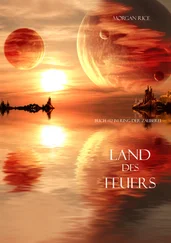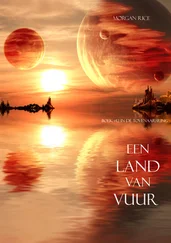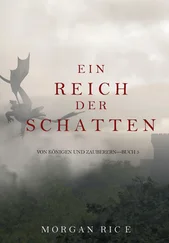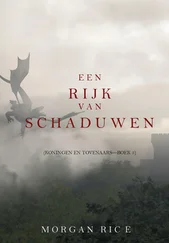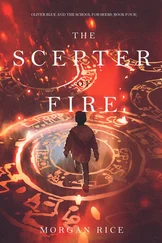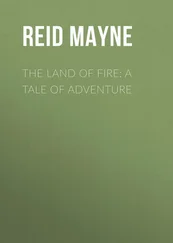“Enough,” Desmond said to Kaz, his voice filled with authority. “You’ve had your fun.”
Kaz stared Desmond back, and Darius could see the hesitation, then uncertainty in his eyes. Clearly, he was afraid of Desmond.
“I’m not done,” Kaz said.
“I said you are,” Desmond repeated, expressionless, unmoving.
Kaz stared him down for several seconds, then finally, he must have realized it wasn’t worth it; slowly, he backed away.
The tension dissipated, the boys going back to their lines, Darius looked up and saw Desmond reach down a hand for him. He took it and was pulled back up to his feet.
“That was brave of you,” Desmond said. “Stupid. But brave.”
Darius smiled.
“Thanks,” he said. “You spared me a lot worse.”
Desmond shook his head.
“I admire bravery,” he said. “However foolish.”
Suddenly, a distinct sound cut through the clearing; it was the sound of a horn, a low, somber horn, vibrating through the trees.
The boys all froze and looked at each other, their faces grave. That horn only meant one thing: it was the horn of death. It could only mean that one of their own had been killed.
“Everyone to the village at once!” commanded Zirk, and Darius fell in with the others, Desmond, Luzi, and Raj falling in by his side, as they made their way for the village. Darius braced himself, knowing it could not be good.
* * *
Darius hurried with his brothers in arms straight into the chaotic center of their small village, people filtering into the packed center as the horn of death blew again and again. Darius walked on the narrow dirt road, filled with chickens and dogs running about, and he passed small brown homes built of clay and mud, with thatched roofs that let in too much rain. The homes in this village were too close to each other, and Darius often wondered why he and his people could not live someplace else.
The soft, low horn blew again, the sound rising up, reverberating throughout the hills, and more and more villagers streamed in. Darius had not seen so many of his people in one place in as long as he could remember, and he felt people bumping him on all sides, shoulder to shoulder, as he reached the village center.
The crowd fell silent as the village elders appeared, taking their seats around the stone well in the center of town. Salmak, the leader of the elders, stood solemnly, and as he did, all were silent. He faced them all, with his long white beard and fraying robes, and raised a single palm high in the air, and the horn stopped. The tension in the silence hung over them all like a blanket.
“The collapse on the mountainside,” he said slowly, his voice grave, “brought the death of twenty-four of our brethren.”
Moans and cries arose from the crowd, and Darius felt his stomach drop. As always, he braced himself for the list of names, hoping and praying that none of his cousins or aunts or uncles were on it.
“Gialot, son of Oltevo,” Salmak called out in his somber voice, and as he did, a mother’s cry ripped through the air. Darius turned and saw a woman weeping, tearing her clothes, dropping to her knees and putting dirt on her head.
“Onaso, son of Palza,” the chief continued.
Darius closed his eyes and shook his head as all around him came the sound of wailing and crying, as name after name filled the air. Each name felt like a nail in his coffin, like a hole in his heart; Darius felt like it would never end. He knew most of the names, some distant acquaintances.
“Omaso, son of Liutre.”
Darius froze: that was a name he really knew, the name of one of his brothers in arms. At the announcement, his brothers all gasped. Darius closed his eyes and imagined his friend’s death, imagined him being crushed by all that rock and dirt, and he felt sick. He also knew that it could easily have been him instead; just last week, Darius had been assigned to work those cliffs.
Finally, the names stopped, and there came a long silence. The crowd began to slowly disperse, the air somber, and Darius and the other boys stood there, staring at each other. They all looked indignant, as if knowing that something needed to be done.
Yet Darius knew that they would do nothing. It was the way of his people, the way it had always been. His people would all die, either directly by the taskmasters, or indirectly through labor, and it had become their lot, their way of life. No one ever seemed willing to change it.
This time, though, the deaths affected Darius more than usual; it seemed there were more names, more grief. Darius wondered if it was worse, or if he was just growing older, becoming less able to tolerate the status quo he had always lived with.
Without thinking, Darius stepped forward into the village center, without even asking permission from the elders. Before he could even think of what he was doing, he found himself yelling out, his voice piercing the air:
“And how long shall we suffer these indignities?” he cried out.
The crowd froze, and all eyes turned to him as there came a heavy silence.
“We are dying here, each day. When will enough be enough?”
There came a murmur from the crowd, and Darius felt a hand on the back of the shoulder. He turned to see his grandfather looking down sternly at him, trying to yank him away.
Darius knew he was in trouble; he knew it was a sign of great insolence to show anything but respect toward the elders, and to speak without permission. But on this day, Darius didn’t care; on this day, he’d had enough.
He brushed off his grandfather’s hand and stood his ground, facing the elders.
“They outnumber us more than the sands of the sea,” an elder said back. “If we rise up, by day’s end we would be gone. Better to be alive than to be dead.”
“Is it?” Darius called out. “I say it’s better to be dead than to live as dead men.”
A long murmur came from the crowd, none of his villagers used to hearing any defiance of the elders. His grandfather yanked on his shirt again, but Darius would not move.
Salmak stepped forward and glared down at him.
“You speak without permission,” he said slowly, gravely. “We will forgive your words as those of a hasty youth. But if you continue to incite our people, if you continue to show disrespect to your elders, you will be lashed in the town square. We shall not warn you again.”
“This meeting is finished!” another elder yelled out.
The crowd began to slowly disperse all around Darius, and his cheeks burned with the indignity of it all. He loved his people, but he disrespected them at the same time. They all seemed so complacent to him, and he did not feel he was cut from the same cloth as they. He was terrified of becoming like them, of growing old enough here to think as they did, to see the world as they did. Darius felt he was still young enough and strong enough to have independent thought. He knew he needed to act on that while he still could, before he became old and complacent. Before he became like the town elders, trying to silence anyone who held a dissenting view, anyone with passion.
“You are really looking to get a beating, aren’t you?” came a voice.
Darius turned to see Raj come up beside him with a smile, clasping him on the shoulder.
“I didn’t think you had it in you,” Raj added. “I’m getting to like you more and more. I think you might just be as crazy as I.”
Before Darius could respond, he turned to find one of his commanders, Zirk, standing over him, a disapproving look across his face.
“It is not your place to propose action,” he said. “It is ours. A true warrior knows not only how to fight, but when to. That is something you have yet to learn.”
Darius faced him, determined, not willing to back down this time.
Читать дальше
Конец ознакомительного отрывка
Купить книгу
